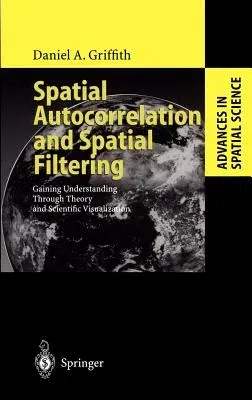Daniel A Griffith
(Author)Spatial Autocorrelation and Spatial Filtering: Gaining Understanding Through Theory and Scientific Visualization (2003)Hardcover - 2003, 10 July 2003

Qty
1
Turbo
Ships in 2 - 3 days
In Stock
Free Delivery
Cash on Delivery
15 Days
Free Returns
Secure Checkout

Part of Series
Advances in Spatial Science
Part of Series
Advances in Spatial Sciences (Hardcover)
Print Length
250 pages
Language
English
Publisher
Springer
Date Published
10 Jul 2003
ISBN-10
3540009329
ISBN-13
9783540009320
Description
Product Details
Author:
Book Edition:
2003
Book Format:
Hardcover
Country of Origin:
US
Date Published:
10 July 2003
Dimensions:
23.39 x
15.6 x
1.6 cm
ISBN-10:
3540009329
ISBN-13:
9783540009320
Language:
English
Location:
Berlin, Heidelberg
Pages:
250
Publisher:
Weight:
553.38 gm